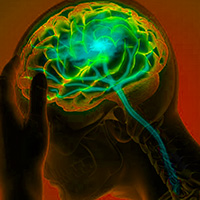Ischemic stroke in a patient with interatrial block: Is it only a coincidence or a clear relationship?

Submitted: November 22, 2020
Accepted: January 5, 2021
Published: April 13, 2021
Accepted: January 5, 2021
Abstract Views: 839
PDF: 404
Publisher's note
All claims expressed in this article are solely those of the authors and do not necessarily represent those of their affiliated organizations, or those of the publisher, the editors and the reviewers. Any product that may be evaluated in this article or claim that may be made by its manufacturer is not guaranteed or endorsed by the publisher.
All claims expressed in this article are solely those of the authors and do not necessarily represent those of their affiliated organizations, or those of the publisher, the editors and the reviewers. Any product that may be evaluated in this article or claim that may be made by its manufacturer is not guaranteed or endorsed by the publisher.
Similar Articles
- Maria Teresa La Rovere, Egidio Traversi, Prognostic impact of digoxin use for rate control of atrial fibrillation in patients ≥75 years of age , Monaldi Archives for Chest Disease: Vol. 88 No. 2 (2018)
- Francesco Orso, Riccardo Barucci, Stefania Fracchia, Giulio Mannarino, Alessandra Pratesi, Francesco Fattirolli, Treatment of very old patients with non valvular atrial fibrillation. The valuable opportunity offered by New Oral Anticoagulants, to be cautiously used , Monaldi Archives for Chest Disease: Vol. 80 No. 4 (2013): Cardiac Series
- Lorenzo Palleschi, Eleonora Nunziata, Net clinical benefit of anticoagulation therapy in the elderly patients with atrial fibrillation , Monaldi Archives for Chest Disease: Vol. 88 No. 2 (2018)
- Stefania Angela Di Fusco, Furio Colivicchi, Nadia Aspromonte, Marco Tubaro, Alessandro Aiello, Massimo Santini, Direct oral anticoagulants in patients undergoing cardioversion: insight from randomized clinical trials , Monaldi Archives for Chest Disease: Vol. 87 No. 1 (2017)
- Maurizio Giuseppe Abrignani, Furio Colivicchi, Thromboembolic and hemorrhagic risk stratification in patients with atrial fibrillation. Part I: the thromboembolic risk , Monaldi Archives for Chest Disease: Vol. 80 No. 2 (2013): Cardiac series
- Mario Sorice, Francesco Paolo Tritto, Chiara Sordelli, Rosario Gregorio, Luigi Piazza, N-3 polyunsaturated fatty acids reduces post-operative atrial fibrillation incidence in patients undergoing “on-pump†coronary artery bypass graft surgery , Monaldi Archives for Chest Disease: Vol. 76 No. 2 (2011): Cardiac series
- O. Serafini, G. Misuraca, A. Siniscalchi, M.T. Manes, G. Meringolo, C. Tomaselli, M. Chiatto, A. Buffon, Prevalence of aneurysm of the interatrial septum in the general population and in patients with a recent episode of cryptogenetic ischemic stroke: a tissue harmonic imaging transthoracic ecocardiography study in 5.631 patients , Monaldi Archives for Chest Disease: Vol. 66 No. 4 (2006): Cardiac series
- Maurizio Giuseppe Abrignani, Vincenzo Abrignani, Thromboembolic and hemorrhagic risk stratification in patients with atrial fibrillation. Part II: hemorrhagic risk and guidelines recommendations , Monaldi Archives for Chest Disease: Vol. 80 No. 3 (2013): Cardiac series
- Roberta Ancona, Salvatore Comenale Pinto, Pio Caso, Vito Di Palma, Francesca Pisacane, Alfonso Roberto Martiniello, Cesare Quarto, Nicla De Rosa, Carlo Pisacane, Raffaele Calabrò, Right atrial mass following transcatheter radiofrequency ablation for recurrent atrial fibrillation: thrombus, endocarditis or mixoma? , Monaldi Archives for Chest Disease: Vol. 72 No. 1 (2009): Cardiac series
- Fulvio Cacciapuoti, Salvatore Crispo, Davide D’Andrea, Crescenzo Materazzi, Salvatore Chianese, Simona Cotena, Rossella Gottilla, Valentina Capone, Ciro Mauro, Dual device intervention for stroke prevention and bradycardia: a case report , Monaldi Archives for Chest Disease: Early Access
You may also start an advanced similarity search for this article.

 https://doi.org/10.4081/monaldi.2021.1692
https://doi.org/10.4081/monaldi.2021.1692





